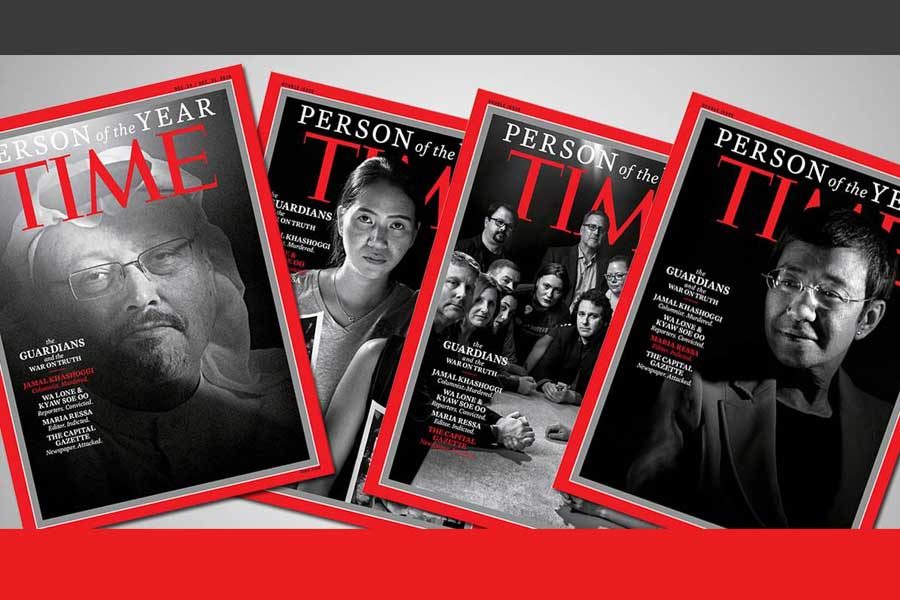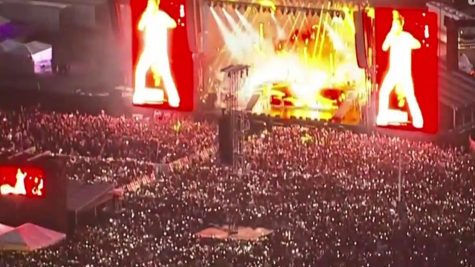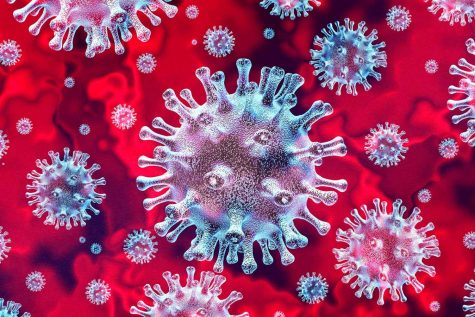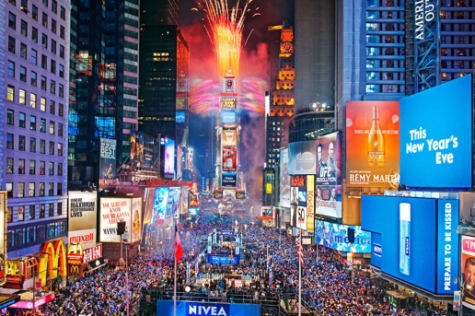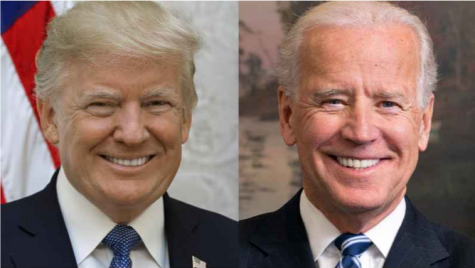Get to know TIME’s 2018 Person of the Year
What is the ‘Person of the Year’?
Each year, TIME magazine selects the person or group of people who have had the greatest impact on the world in that year. This title is typically granted to those involved in the most talked-about news story or those who have generated some form of change in the world through individual or communal efforts. Many assume the title is given as a prestigious accolade, but the people selected are not always being honored; Adolf Hitler was recognized in 1938, and Joseph Stalin in 1939 and 1942 because of their negative impact on global politics in their respective years. In 2016, TIME selected Donald Trump as a result of his victory in the presidential election. On the other hand, the selected group or individual may be chosen to honor a progressive event that they contributed to in that year. In 2017, the Silence Breakers, including all outspoken victims of sexual assault, were honored for their bravery and perseverance.
In 2018, TIME has chosen to recognize the Guardians and the War on Truth.
Who are the Guardians?
The Guardians include all news reporters who were arrested, exiled, and murdered in 2018 for their criticism of the governments of various countries around the world. In a video released by TIME, reporters from twelve countries were honored in regard to their courageous actions against their governments’ attacks on free speech (watch the video here). Four different cover pages have been released to honor Wa Lone and Kyaw Soe Oo of Myanmar, Maria Ressa of the Philippines, Jamal Khashoggi of Saudi Arabia, and the journalists at the Capital Gazette in Annapolis, Maryland.
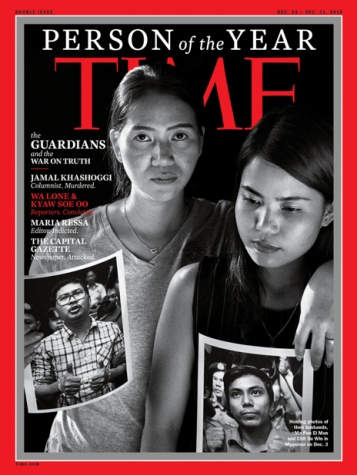
Wa Lone and Kyaw Soe Oo
Burmese reporters Wa Lone and Kyaw Soe Oo were detained on December 12, 2017 for possessing ‘state secrets,’ including information on the massacre of hundreds of Rohingya people by the military and anti-Rohingya Buddhists in Rakhine State, Myanmar. The State Counsellor Suu Kyi’s attempts to cover up the genocide were futile due to media coverage by journalists like Wa Lone and Kyaw Soe Oo, and publications of the event led to the United Nations’ call for military commanders to face prosecution for genocide. Wa Lone and Kyaw Soe Oo were deemed enemies of the state for publicizing classified information on the massacre, and they were sentenced to 7 years in prison each. Their wives, Pan Ei Mon and Chit Su Win, appear on one of four ‘Person of the Year’ issues in honor of their husbands’ great sacrifice to provide honest portrayals of the horrific event.
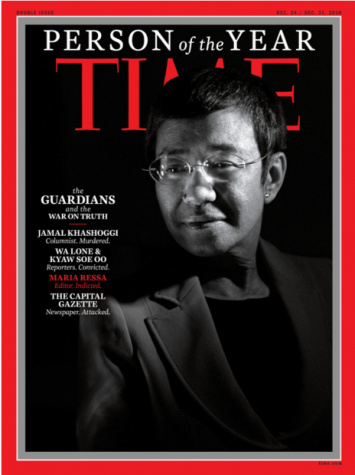
Maria Ressa
The president of the Philippines, Rodrigo Duterte, is trying to strengthen his regime and establish the Philippines as an authoritarian state. Duterte’s regime has made use of social media to manipulate the public’s opinions, often by creating fake posts and news articles that have changed the way readers consume news and has people questioning whether they can rely on the media for news coverage. In addition to manipulation of the media, his tactic in promoting his totalitarian rule has been targeting freedom of speech by killing news reporters and media workers who report on his regime. Maria Ressa, CEO of the journalism website Rappeler, is one of the journalists on President Duterte’s list. She began covering his administration after he was elected president in 2016, her first article addressing the president’s use of social media to produce fake content as self-promotion. Duterte quickly caught on to her reporting and has stripped her company of its license. Ressa’s steadfast determination to disclose the actions of the authoritarian president’s regime in the name of freedom of speech exemplifies what it means to be a devoted journalist.
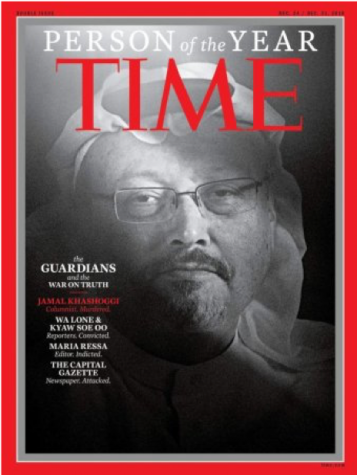
Jamal Khashoggi
The killing of Saudi Arabian journalist Jamal Khashoggi was covered for months after President Trump refused to condemn the crown prince of Saudi Arabia, Mohammad bin Salman for the reporter’s murder. Video surveillance footage of Khashoggi’s killing was released, and it is apparent that the government sent assassins in private jets to kill the reporter and dismember his body with a saw. Khashoggi was a commentator for the Washington Post, often publishing criticisms of Crown Prince Mohammad bin Salman’s regime. He provoked the public to come to their own opinion of the prince and to not allow the government’s brutality to instill a fear of noncompliance among the Saudi people. He wrote in a 2017 column, “When I speak of the fear, intimidation, arrests and public shaming of intellectuals and religious leaders who dare to speak their minds, and then I tell you that I’m from Saudi Arabia, are you surprised?” The purpose of his writing was to influence the people of Saudi Arabia to have thoughts and opinions independent from the beliefs of their crown prince. The publication of his non compliant articles triggered his assassination, and now several nations have called for the prince to admit to arranging the homicide. Jamal Khashoggi was a martyr for the War on Truth, and he is survived by his supporters who aim to continue his fight to end global attacks on free speech.
The Capital Gazette 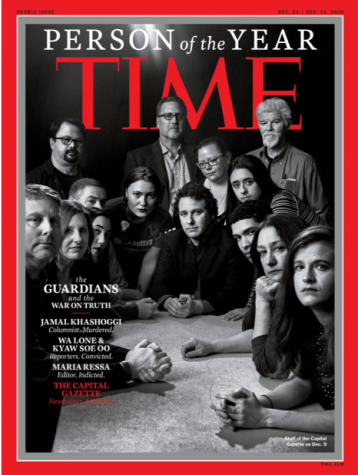
On July 28, 2018, a gunman walked into the office of the Capital Gazette and shot and killed five reporters. As a local newspaper, the Capital covered local elections, sporting events, etc., and an article reporting Jarrod Ramos’ harassment of a high school classmate was a routine reporting of local legal activities. Ramos became obsessed with the company after the publication of the article, and the mass shooting came after a series of online threats towards the company. Chase Cook, a reporter for the Capital, released a statement the same day, saying, “I can tell you this, we are putting out a damn paper tomorrow.” The surviving reporters set up a makeshift office in a pickup truck and, as promised, the following day a paper was released. The columns normally occupied by the words of the five men and women shot dead were filled with only the statement, “Tomorrow this page will return to its steady purpose of offering our readers informed opinion about the world around them, that they might be better citizens.” The survivors of the shooting never gave up writing, and today the Capital Gazette continues to provide honest local news reporting despite the attack. TIME has chosen to honor these reporters for their dedication to journalism after the tragedy that unfolded.
Why the ‘War on Truth’?
Freedom of speech is one of the fundamental principles of democracy. It is a right granted to all people through the UN’s Declaration of Human Rights, but it is also one of the most fragile rights we have. When this right to freedom of speech is stripped away, the right to democracy becomes vulnerable against those who want to replace it with authoritarianism. The War on Truth is the desire to protect human rights against the desire to accumulate absolute power. The world’s democracy is being threatened, and the journalists are being targeted first. However, it is reporters like Wa Lone, Kyaw Soe Oo, Maria Ressa, Jamal Khashoggi, and the Capital Gazette staff who are fighting to protect the rest of the world from what could be the death of democracy. Luz Mely Reyes, the co-founder of Efecto Cocuyo, told TIME, “We decided that instead of watching the funeral of journalism, we would do something. When we produce many lights, even small lights, we can illuminate a whole nation.”
Vick, Karl. “The Guardians and the War on Truth.” TIME. time.com/person-of-the-year-2018-the-guardians/ Accessed 12 Dec. 2018.
All photos courtesy of Moises Saman-Magnum for TIME

